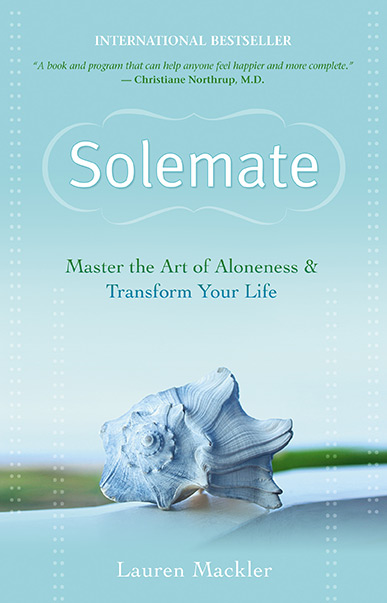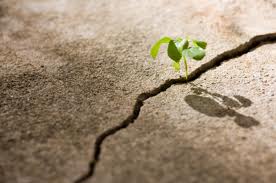WANT GREATER WHOLENESS?
SOLEMATE WEEKEND WORKSHOP!3/16-18, 2012 at Kripalu Lenox, MA
 Are you ready to gain mastery over your own life? Many people spend years waiting for a “soul mate” to make them feel complete. Others settle for difficult or unfulfilling or relationships out of fear of being alone. Instead of depending on someone else to make you whole, this workshop takes you on a life-changing journey to greater self-mastery, empowerment, and well-being—whether you’re living your life on your own or in a relationship. For more info or to register, click here.
Are you ready to gain mastery over your own life? Many people spend years waiting for a “soul mate” to make them feel complete. Others settle for difficult or unfulfilling or relationships out of fear of being alone. Instead of depending on someone else to make you whole, this workshop takes you on a life-changing journey to greater self-mastery, empowerment, and well-being—whether you’re living your life on your own or in a relationship. For more info or to register, click here.
The Art of Resilience
 Do you sweat the small stuff or feel chronically stressed? If so, you’re not alone. According to a 2008 national survey by the American Psychological Association (APA), 77 percent of Americans reported having physical symptoms due to stress, and 73 percent claimed to be experiencing stress-related psychological problems.
Stress is an emotional and physical reaction caused by our responses to life challenges. There is no universally accepted definition of stress and each person reacts differently, based on their innate personality traits, early conditioning, and life experiences. What is overwhelming for one person may be exciting to another, while that same situation may have little impact on someone else.
Do you sweat the small stuff or feel chronically stressed? If so, you’re not alone. According to a 2008 national survey by the American Psychological Association (APA), 77 percent of Americans reported having physical symptoms due to stress, and 73 percent claimed to be experiencing stress-related psychological problems.
Stress is an emotional and physical reaction caused by our responses to life challenges. There is no universally accepted definition of stress and each person reacts differently, based on their innate personality traits, early conditioning, and life experiences. What is overwhelming for one person may be exciting to another, while that same situation may have little impact on someone else.
In small amounts, stress can be a positive impetus. It can inspire productivity and motivate you to complete your goals. But chronic stress can have many adverse effects, including irritability, depression, headaches, gastrointestinal problems, sexual dysfunction, substance abuse, depletion of the immune system, and even life-threatening illness.
The best antidote to stress is resilience. Resilience means having the ability to respond to change or adversity proactively and resourcefully. It involves a process of consciously drawing on the beliefs, behaviors, and skills that can help you respond to challenges effectively, and move beyond them as a stronger person.
Findings from the Kauai Longitudinal Study showed that resilient people did not passively react to negative life circumstances, but proactively took action to achieve positive outcomes. Instead of staying stuck in feelings of anger, fear, or anxiety, step back and ask yourself, “What reaction am I having, how do I want to respond, and what outcomes do I want?” Next, brainstorm possible courses of action, determine those most likely to produce desired outcomes, prioritize your action steps, then move into action.
Below are some additional tips to develop greater resilience and to help you manage stress. Reframe change from a threat to a natural part of life. Instead of resisting change, embrace it as a natural progression of life. Every time you find yourself holding on to what was, say to yourself, “I release the past, cooperate fully with today, and enthusiastically embrace tomorrow.” The foundation of resilience is accepting change as an inevitable part of life. Fighting it not only produces frustration, but it keeps you from taking action and moving forward.
Identify the opportunities inherent in the challenge. There is much truth in the old adage of what does not kill us makes us stronger. To help you turn a stressor into an opportunity, write down the specific situation causing you to feel stressed. For example, “I’m worried I’m going to lose my job.” Next, write down how you can turn your concern into an opportunity. For example, you could get your resume updated and start networking to find that fulfilling job you’ve been dreaming about for the last two years.
Develop greater awareness and self-mastery. The more awareness and self-mastery you have, the greater your resilience. Personal development has many benefits, one of which is gaining greater clarity about your reactive patterns and how they may be negatively impacting your life. Finding good resources to change habitual, limiting patterns will not only transform your life, but it will provide you with effective life skills to draw upon in difficult times.
Build a strong inner support system. Despite the deluge of information about the link between diet and health, most people don’t actively embrace that they are what they eat. Your body runs on fuel in the form of food, and if the fuel you put in your body is not healthy, you can’t expect your body to produce optimal wellness. A diet low in nutrients can deplete your reserves of vitamins and minerals, making it even more difficult to manage stress. Reduce or eliminate caffeine, sugar, and alcohol, and replace fatty meats and processed foods with fresh fruit, vegetables, whole grains, lean meat and fish, nuts, seeds, and legumes.
Change is part of the human condition and no one is exempt from emotional pain and adversity. Developing resilience is a critical key to not only accepting and meeting a life challenge head on, but being able to get to the other side of it with greater wisdom and strength.
WANT TO USE THIS ARTICLE IN YOUR E-ZINE, BLOG, OR WEB SITE? You can, as long as you include this complete statement at the end of the article:
© 2012 Lauren Mackler
Lauren Mackler is a world-renowned coach and author of the international bestseller Solemate: Master the Art of Aloneness & Transform Your Life. Sign up for her free Live Boldly e-newsletter at www.laurenmackler.com.
Cooperate with What is
Resilience
The Art of Psychotherapeutic Coaching
I'll be presenting my psychotherapeutic coaching method, Illumineering, 12/8 at the 12/5-11 Psychology of Health, Immunity and Disease Conference in Hilton Head, South Carolina. I'll be speaking with Joan Borysenko, Bruce Lipton, David Whyte, Ronald Siegel, and many more great presenters. Click here for more info.

Breaking Promises to Yourself?
 “I continually make promises to myself, but I never follow through.”
“I continually make promises to myself, but I never follow through.”
Sound familiar?
Transforming self-defeating patterns into self-supporting behaviors that stick is one of the hardest things to do. Change is hard and we all slip up. The key is to getting yourself back on-course when you do.
When you find yourself falling back into old, limiting patterns, think of it as a process of course-correcting. Welcome the challenge—it means that you’re taking charge of your life. Don’t judge yourself. Instead, treat yourself with compassion.
Below are some common pitfalls to personal transformation and some ways to override them:
Feeling overwhelmed. Most likely, if you start to feel overwhelmed, it’s because you’re trying to make too many changes all at once. The best way to deal with this is to step back and look at your personal development goals. If you’re taking on too much, it’s time to reprioritize. Maybe you need to focus on one or two things instead of three. Or maybe one of your goals requires a lot of effort, so it’s taking up all your energy. Identify the things that are most important to you right now in your life. If you need to, just focus on one goal at a time and don’t move on to the next one until the first one is achieved.
Feeling discouraged. This often happens when you’re listening to the inner critic—the inner voice that says: “You’ll never make it.” “It’s hopeless.” “This is too hard.” “You’re not moving fast enough.” Whatever that voice is saying, you need to articulate a response, drawing from the part of you that longs for change and feels optimistic. Review your past accomplishments; remind yourself of what you’re capable of doing and being. Instead of focusing on and feeding the old voice that drags you down, actively support the part of you that believes in you and your ability to create the life you want.
Falling back into old patterns. There are two ways to address this issue. First, be aware that you’re more likely to slip up when you’re trying to achieve change all by yourself. It may be that you don’t have an outer support system to help you maintain your focus and discipline and to give you the kind of outside encouragement everyone needs. Outer supports might include a trusted friend or family member, a coach or therapist, or a supportive group. To have a strong outer support system, you have to actively build and sustain it. That involves reaching out to people instead of keeping yourself isolated. Second, if you’re falling back into old patterns, avoid situations that trigger your old behaviors. For example, if you habitually eat junk food when you’re feeling isolated and lonely on weekends, schedule some weekend social activities to bypass the old trigger.
Lack of energy. Take good care of yourself. A lack of energy typically relates to a failure to sustain your inner support system, which provides the physical, emotional, and mental energy needed to achieve your goals. If you’re eating poorly, neglecting your health, or living a high-stress lifestyle, you’re depleting your inner resources. That will make it difficult to maintain the energy you need to participate fully and actively in your life.
Lack of motivation. If you don’t have a loving and caring relationship with yourself, it’s hard to feel motivated to take action and make good choices for yourself. Building and sustaining a healthy, loving relationship with yourself is absolutely crucial to personal transformation. Loving yourself compels you to make lifestyle choices that make you feel good and that will generate the new results that you want.
WANT TO USE THIS ARTICLE IN YOUR E-ZINE, BLOG, OR WEB SITE? You can, as long as you include this complete statement at the end of the article:
© 2011 Lauren Mackler
Lauren Mackler is a world-renowned coach and author of the international bestseller Solemate: Master the Art of Aloneness & Transform Your Life. Sign up for her free Live Boldly e-newsletter at www.laurenmackler.com.
Solemate Workshop 11/25-27, 2011
SOLEMATE Workshop11/25-27, 2011 Kripalu - Lenox, MA
World-renowned coach and bestselling author of Solemate: Master the Art of Aloneness & Transform Your Life, Lauren Mackler, presents her groundbreaking workshop to help you achieve mastery of your own life, and greater wholeness and well-being on your own or in a relationship. For info and registration, click here.
SOLEMATE 10/1/11 in Cambridge, MA
SOLEMATE Presentation & Book SigningWorld-renowned coach and bestselling author of Solemate: Master the Art of Aloneness & Transform Your Life, Lauren Mackler, presents her groundbreaking roadmap to help you achieve mastery of your own life, and greater wholeness and well-being on your own or in a relationship. For info and registration, click here.
Solemate Book Events: Boston & Los Angeles
 9/24/11 Boston, MA
10/14/11 Los Angeles, CA
9/24/11 Boston, MA
10/14/11 Los Angeles, CA
World-renowned coach and bestselling author of Solemate: Master the Art of Aloneness & Transform Your Life, Lauren Mackler, presents her groundbreaking roadmap to help you achieve mastery of your own life, and greater wholeness and well-being on your own or in a relationship. For info and registration, click here.
Busting the Break-Up Blues
I was recently interviewed by reporter Elizabeth Bernstein for her column in the Wall Street Journal. Below is the full interview.
 WSJ: How do you take your mind off of someone and not text them?
WSJ: How do you take your mind off of someone and not text them?
LM: People often call, text, or email their ex because they feel lonely, anxious, or in response to replaying happy memories of the relationship over and over in their head. In the aftermath of a break up, people often screen out the bad stuff, and focus on the good parts of the relationship—even if the happy times had disappeared months or years before the break up.
In an unconscious attempt to alleviate loneliness or anxiety, people reach out to their ex to keep the connection alive, since they associate the person or relationship with feeling loved, happy, or safe. Instead of ruminating on the memories that trigger loneliness or anxiety, bring yourself back into the reality of why the relationship didn’t work. Write down what didn’t work or that caused you pain in the relationship. Focus on the reality of today, instead of the story you’re telling yourself about the past.
WSJ: Are there stages of breakup emotions? What are they?
LM: Elizabeth Kubler-Ross’s 5 stages of grief—denial, anger, bargaining, depression, and acceptance—apply to all kinds of major loss, including a significant break up. People experience the stages differently, depending on their personality traits and resiliency, past experiences, and overall mental and emotional health. For example, someone who tends to respond to life challenges with anger will have more difficulty feeling the sadness of the depression stage and can remain stuck in the anger stage for months or even years. People more prone to depression may bypass the anger stage and spend more time in the depression stage before moving into acceptance.
If you find yourself stuck in any of the stages, seek professional help. While these stages are normal in a break up, being unable to move through them is a sign that there may be deeper issues at play. Break ups often trigger the pain of childhood trauma and experiences (divorce, death of a parent, abandonment, or physical, verbal, or sexual abuse). Because these wounds are often buried in the subconscious, people think it’s the break up that’s making them feel so bad, when the break up may be the trigger of those feelings, not the root cause.
WSJ: Do men and women handle breakups differently?
LM: Based on my work with clients over the past 20 years, I’d say that the more dependent someone is on a partner for their sense of self-worth, identity, and/or financial security, the more devastated they are by the break up. Although much has changed over the past 40 years—and there are certainly many exceptions—comparatively, more women rely on men for their self-worth, identity, or financial security than the other way around. But there are other forms of dependency, like emotional dependence (needing someone else to make you happy) and domestic dependence (relying on another person for cooking, cleaning, grocery shopping, laundry, etc.).
Based on what I’ve seen in my practice, I’d say that generally, more men are emotionally and domestically dependent on women than the other way around. But regardless of the form of the dependency, the more one relies on another human being for their emotional, financial, or day-to-day well-being the harder it is when that person goes out of their life. Because men are more conditioned not to express their feelings, women tend to have an easier time talking about the painful feelings of a break up. But men can be just as devastated by a break up as women, even if they have a harder time expressing it.
WSJ: What are bad ways to handle a breakup?
LM: No matter what happened to cause the final break up, every relationship is a co-creation of the couple’s interpersonal dynamics, including those that can lead to an infidelity. While anger is a normal emotion, continuously blaming your partner keeps you stuck in a victim role and unable to move forward. As hard as it can be, exploring your role in the relationship and its demise allows you to move out of the victim role and gain valuable lessons about what to do—or not to do—in a relationship going forward.
Instead of blaming their partner, many people use the break up against themselves—being self-critical, judging what they did or didn’t do, or bombarding themselves with guilt and regret. Understand that you both did the best you could do with the knowledge and skills you had at the time. It’s important to take responsibility for your part in the relationship and break up, but this doesn’t mean berating yourself. Instead, have compassion for yourself because you really did do the best you could at the time.
Another common mistake people make is delving right into another relationship. Recovering from a break up takes time, so getting immediately involved with someone new will only postpone your healing.
WSJ: How can people work through all the feelings of a break-up?
LM: When I’m working with a client, I encourage them to look deeper than the “symptoms” of the situation—who said or did what—to the underlying, repetitive patterns that deteriorated the relationship. Since you can’t change the other person, the work should be focused on you—not on the other person. Explore the patterns and feelings you experienced in the relationship and ask yourself, “Which of these are familiar to me from other times in my life and in other relationships?” These are what I call people’s “core wounds.” Understanding what they are and from where they originate—and then implementing action steps to address and heal them—is a far more effective response to a break up than keeping yourself stuck in blame, anger, or guilt, and repeating the same patterns and outcomes relationship after relationship.
WSJ: How much time does it take to get over someone?
Recovery time varies, depending on the length of the relationship, the availability of a support system, the person’s personality traits and coping skills, the nature of the relationship and break up, whether or not children are involved, and the person’s overall mental and emotional health. The longer and more meaningful the relationship, the greater the loss and the longer it takes to heal. Recovery can take as little as a few months for a shorter-term relationship to several years for a long-term partnership or marriage. However, I’ve known people who never did the work to recover from their break up and spent the rest of their lives angry, bitter, and miserable.
WSJ: How do you help people face their feelings and understand what they did wrong or what to do differently next time to grow and learn from the experience? Can you share an example?
LM: “Bridget” attended my Moving Beyond a Break-Up or Divorce workshop and went on to work with me individually in my Illumineering coaching program. Her husband had left her for another woman and she was alone with 2 small children. When I met her, she felt abandoned, scared, and very bad about herself, believing that her husband had left because she wasn’t attractive, interesting, and intelligent enough.
To uncover the roots of her low self-esteem, we examined the family system she grew up in and her childhood experiences. Growing up with an emotionally aloof, critical father and a passive, self-deprecating mother, Bridget recognized that her feelings of not being good enough had plagued her since she was a little girl. She spent her life seeking others’ approval by saying and doing what others wanted—a pattern she continued in her marriage.
Recognizing how she had unconsciously replicated the dynamics played out in her parents’ relationship in her own marriage dramatically shifted her perspective. She realized that her negative beliefs about herself were ones she had adopted growing up, and how she continually reinforced them by making others’ needs more important than her own and allowing others—including her husband—to treat her like a doormat. This realization helped her move out of the role of the helpless victim and take responsibility for her part in the marriage and its demise.
The next part of the work involved developing an action plan to reclaim what I call her “lost parts”—the parts of her that feel empowered, strong, intelligent, and good about herself. Bridget was a chronic “People Pleaser” who always said what she thought others expected, so she had no idea how to express her real thoughts and feelings to others. We spent 2 sessions on effective communication coaching to help her learn how to communicate in ways that would strengthen versus weaken her relationships with others.
Another way her feelings of unworthiness had affected her throughout her life was that she always felt ashamed of her body and physical appearance. She hid beneath baggy clothes, didn’t wear make up, and tried to diminish her height by slouching her shoulders. We focused on helping her celebrate her physical appearance versus trying to hide it. She bought clothes that no longer hid her body, she began to experiment with make up, and she took a six-week belly dancing class to experience having fun in her body and override old feelings of shame.
Another action step we devised to reclaim her self-worth was to ask her boss for a raise. For a long time, she felt undercompensated and undervalued at work but was too afraid to ask for more money. To prepare for her meeting with her boss, I had Bridget make a list of her contributions, including the revenue she had generated over the past year for the company. When she reviewed her list, she realized how much she had accomplished, strengthening her confidence to ask for—and receive—the raise.
Be Healthy Boston Interview
I was interviewed recently by Abigail Hueber on the topic of wellness and the upcoming Be Healthy Boston conference, where I'll be speaking January 28, 2012. AB: How do you define “wellness”?
LM: I define it as living in alignment with your authentic self. Living life based on fear, others’ expectations, or pain produces mental and emotional imbalance. Not only does this deplete our precious life energy, but over time it can lead to physical problems and even life-threatening illness…To read the entire interview, click here.
Break-Up Tips: Wall Street Journal
If you or someone you know is struggling with the pain of a break-up, I shared some tips with reporter Elizabeth Bernstein, in yesterday's Wall Street Journal.

Lauren's Wisdom: The Art of Alignment
Mastering the Art of Change
 Many people spend a lot of time and energy—even years—on wanting to make life changes, but never bring those changes to reality. So why is it so difficult for people to achieve or sustain the change they want?
All changes—especially big ones—require stepping out of your comfort zone. Because they lack the skills to do so, many people never leave their comfort zones unless a new situation demands it. It simply requires too much effort, they don’t where to start, they’re plagued with self-doubt, or they feel paralyzed by fear. Often what pushes them out of their status quo is a crisis of some kind: an illness, a financial setback, death of a loved one, divorce, or job loss. All big changes—even positive ones like a major move, getting married, or a job promotion—push you out of your comfort zone. And because most people don’t understand the underlying barriers keeping them from moving forward in their lives, without a crisis forcing them to do so, they remain in their status quo, unable to pursue their dreams and goals.
Many people spend a lot of time and energy—even years—on wanting to make life changes, but never bring those changes to reality. So why is it so difficult for people to achieve or sustain the change they want?
All changes—especially big ones—require stepping out of your comfort zone. Because they lack the skills to do so, many people never leave their comfort zones unless a new situation demands it. It simply requires too much effort, they don’t where to start, they’re plagued with self-doubt, or they feel paralyzed by fear. Often what pushes them out of their status quo is a crisis of some kind: an illness, a financial setback, death of a loved one, divorce, or job loss. All big changes—even positive ones like a major move, getting married, or a job promotion—push you out of your comfort zone. And because most people don’t understand the underlying barriers keeping them from moving forward in their lives, without a crisis forcing them to do so, they remain in their status quo, unable to pursue their dreams and goals.
When you’re standing on the edge of your comfort zone, you don’t know what lies ahead, so you’re forced to imagine what lies beyond those boundaries. In the absence of knowing, most people imagine the worst-case scenario, and that induces fear. At worst, fear can be paralyzing; at best, it’s uncomfortable. It takes a lot of courage to step outside your comfort zone and into the jaws of discomfort. So people procrastinate, rationalize, make excuses, and find ways to talk themselves out of a change that will take them into the unknown.
To begin the process of mastering change, here are five things you can do to help you override fear and move out of your comfort zone:
Instead of avoiding it, acknowledge and identify your fear. For example: I’m afraid I will fail or I’m afraid I’ll be rejected.
Identify the “gloom and doom” movie you’re running in your head. Ask yourself: What am I imagining will happen?
Do a reality check. Figure out if your fears have any real basis in fact.
Change the movie you’re running in your head with one that supports your goal rather than undermines it.
Identify the limiting belief about yourself or others that set the fear dynamic in motion. For example: I’m not good enough or People will hurt me and can’t be trusted.
Whenever you’re making a major decision like ending or committing to a relationship, taking a new job, moving to a new city, making a financial investment, or having another child—the more information you can bring to the process, the better you’ll feel about it. Take the time to think things through and trust your instincts. A decision made from an emotional reaction or a whimsical impulse can be fleeting and is not necessarily your best choice.
Here are 3 steps you can take to help you evaluate if a change you’re considering is a grounded and viable decision.
Weigh the pros and cons. Make a list of all the pros and cons related to making the change and evaluate them carefully. Once you have all the pros and cons listed, go back and rate each item listed on the pro side, using a scale of 1 to 10, based on its importance or value to you (1 is the lowest importance or value to you and 10 is the highest). Next rate each item listed on the con side, using a scale of 1 to 10, based on its degree of negative impact (1 is the lowest negative impact and 10 is the highest—a deal-breaker). Then add up the total in each column and compare them.
Check in with your intuition. Ask yourself: How does this sit with me? Your intuition is your instinctive knowing—or gut feeling—about whether or not something is right for you. It’s not a conclusion you reach based on reasoning or emotions. Emotions and intuition are very different. Your emotions can change from day to day, even moment to moment.
Ask the right questions. Ask yourself: Is this a decision that’s aligned with my capabilities, with my goals, with who I really am? How will it affect other aspects of my life? What are the logistics? Is the goal within my reach?
WANT TO USE THIS ARTICLE IN YOUR E-ZINE, BLOG, OR WEB SITE? You can, as long as you include this complete statement at the end of the article:
© 2011 Lauren Mackler
Lauren Mackler is a world-renowned coach and author of the international bestseller Solemate: Master the Art of Aloneness & Transform Your Life. Sign up for her free Live Boldly e-newsletter at www.laurenmackler.com.
College Prep 101
Lauren Mackler, coach and bestselling author of “Solemate: Master the Art of Aloneness & Transform Your Life,” has advice for people gearing up for returning to school this fall. “It’s not unusual for people to feel apprehensive, nervous or even fearful about the start of a new school year,” she said. “Returning to school involves meeting new people, gaining new knowledge and skills, and perhaps even a new school and academic environment.” Mackler said students need to exude confidence and feel like they can do it. “If you are walking around fearful, you give off insecure kind of energy that is not compelling to people,” she said...To read the entire article in the Boston Herald, click here.
Get into Your Uncomfy Zone
Facing the great unknown? Here's some help. Many of us never leave our comfort zones unless we're forced to. So when we're confronted with a major change in life, our routine is broken and we're plunged into unknown waters. However, such upheavals can result in unexpected positive outcomes. "By going outside your comfort zone, you're gaining new experiences, meeting new people, gaining new knowledge and skills, and strengthening different parts of yourself," says Lauren Mackler, life coach and author of Solemate (Hay House)... To read the entire article on Body + Soul, click here.
Wholeness as a Way of Life
As many of you know, the foundation of my Illumineering Coaching work, workshops, and Solemate: Master the Art of Aloneness & Transform Your Life book is all about becoming whole—reclaiming and liberating your potential and living the personal and professional life to which you aspire. So I'm especially thrilled to share with you Carmen Harra's new release, Wholeliness, a beautiful book about wholeness and living in harmony with all that exists. I’ve long believed that reclaiming the innate wholeness with which each of us are born is a critical prerequisite for living a healthy, purposeful, and joyful life. And toward that end, I often recommend books that promote personal transformation. But as a long-time advocate and teacher of human wholeness, I'm especially thrilled to recommend and support the release of Carmen's beautiful new book. To order, click here.
Demystifying Sex Addiction
 It’s disheartening to me that so many people fail to view sex addiction as a SYMPTOM of much deeper issues. All addictions are misguided attempts to manage “pain” (self-loathing, anxiety, anger, etc.). Unless you address the roots of people’s pain, treatment won’t be effective. To read my interview with CNN about Anthony Weiner and sex addiction, click here.
It’s disheartening to me that so many people fail to view sex addiction as a SYMPTOM of much deeper issues. All addictions are misguided attempts to manage “pain” (self-loathing, anxiety, anger, etc.). Unless you address the roots of people’s pain, treatment won’t be effective. To read my interview with CNN about Anthony Weiner and sex addiction, click here.
Getting Unstuck - Huffington Post
 Do you dream of changing your life but feel stuck in your status quo? If so, read my article in the Huffington Post to help you get unstuck! To read the article, click here.
Do you dream of changing your life but feel stuck in your status quo? If so, read my article in the Huffington Post to help you get unstuck! To read the article, click here.








